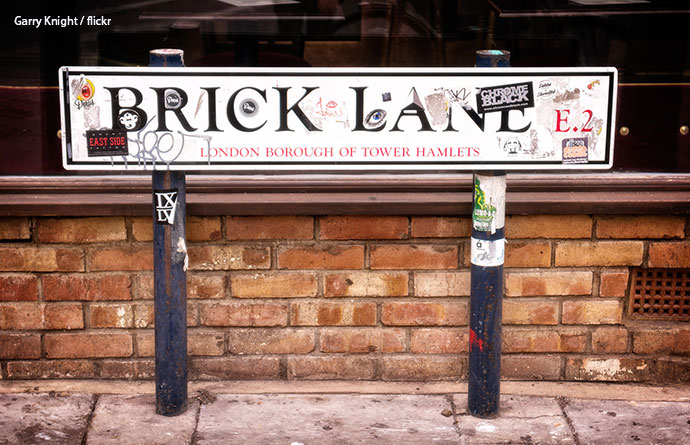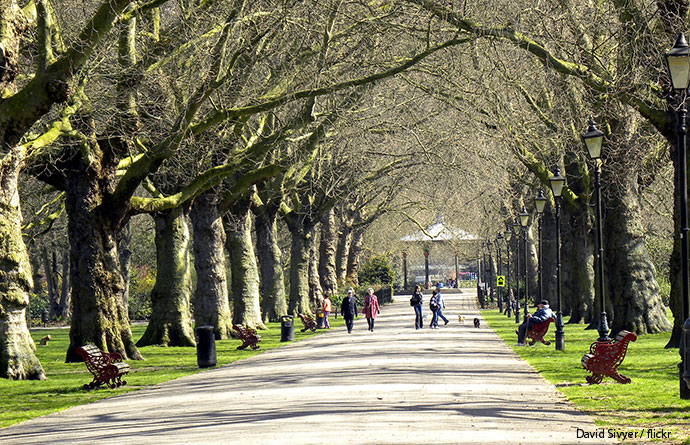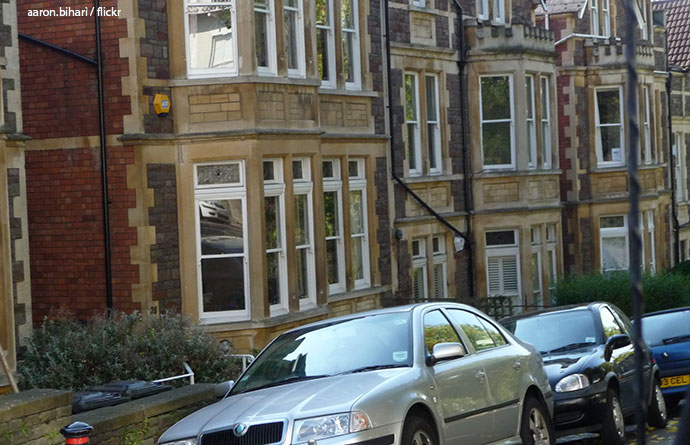
- 31 Things to Consider When Choosing Between Home and Location
- What type of home do you want?
- What type of road do you want to live on?
- What is parking like?
- Does the road become a rat run during rush hour?
- Do you need to be in a certain school catchment area now or in the future?
- What are the employment opportunities?
- Is the area likely to be regenerated?
- Are any newly built estates planned?
- Can the outside of the home be improved?
- How flexible is the accommodation?
- What is the local area like at weekends or evenings?
- Are there good public transport links?
- Is easy access to local stores important?
- Is there plenty for the kids to do as they get older?
- Is the energy efficiency of the home important to you?
- Would you consider a home that needs renovation?
- Could you live on a building site?
- What are your long-term plans?
- Are you moving just to get into that special location?
- Does the better area warrant the extra costs?
- Think about your future mobility
- What are the neighbours like?
- What are the local crime rates?
- What is the difference in living costs?
- What makes this area so desirable?
- What makes the other area less desirable?
- What can’t you change?
- What are your other options?
- What are the must-haves?
- What are the nice-to-haves?
- Would renting a property in the less favourable area be an option?
- Final Thoughts on Choosing A Great Home and Not So-Good Location
So, you have found the perfect home, but the location is not ideal. And in your perfect location, you have found a less-than-perfect home. Which do you choose, home or location?
Is the home or a good postcode more important? Is the size of a home more important than location when moving home?
In this week’s home moving blog, we will weigh up the pros and cons of moving to the ideal location but into an OK home versus moving to the ideal home in a worse area.
We are not talking about a really bad area versus a really good area, but are comparing a very desirable location with an average location, a perfect home with a home that you could manage in, but……
Most people would choose location every time as a home can nearly always be improved. But is this always true and is it always cost-effective, and far more importantly, is it the right decision for YOU?
31 Things to Consider When Choosing Between Home and Location

The best way to approach this conundrum is to draw up a list of your needs and wants, not only now but taking into consideration the future.
Then list the pros and cons for each home and each location.
Here are 31 points that you may want to consider when making your decision.
What type of home do you want?
Although you may not have considered it, don’t discount which type of home you are looking for. Bungalows, flats, and the different types of houses all have pros and cons.
You may also like to read: What type of house is right for me: House, Bungalow, or Flat? It is easy to dismiss certain types of houses but often the homes we exclude from our search could be perfect for us. In this guide, we look at the pros and cons of different home designs.
What type of road do you want to live on?
Whilst living in a cul-de-sac, for example, is considered to be safer as there is statistically less crime, parking can be a nightmare.
Whilst on a main road you may get a lot of traffic noise or litter in your front garden.
The type of street you live on can affect your quality of life immensely even in the same postcode area.
You may also like to read: Choosing Where to Live: Location, Location, Location. In this guide, we look at the pros and cons of living on a main road, in a cul-sac, near shops, fields, parks, schools, or a river.
What is parking like?
New housing estates tend to have limited parking and narrow roads.
Terraced homes also tend to be on congested, narrow roads.
Is there a school or busy shops on the road, which again can cause parking issues?
Does the road become a rat run during rush hour?
Is the home on a rat run? Is it possible that the road could become a major thoroughfare?
Do you need to be in a certain school catchment area now or in the future?
Although you may not need secondary schools, or schools at all right now, will that be a consideration in the future? Does each location fall into a different catchment area?
What are the employment opportunities?
Does the area have enough employment within your work sector for career progression should you need it? Are businesses in your profession looking at local investment now or in the future?
Is the area likely to be regenerated?
Is the area earmarked for regeneration or does the area have the potential for regeneration?
Are any newly built estates planned?
Is it likely that those fields behind your ideal home could be built upon in the future?
You may also like to read: How to Find New Housing Developments. If you are looking to move into an area that has no homes available it could be that a new housing development is planned for that area. In this guide, we share trade websites, and other ideas to be the first to know when a new development is planned or a new phase is being released.
Can the outside of the home be improved?
What are your options to improve the kerb appeal of the home if that is what is putting you off that home?
You may also like to read: How to Improve the Kerb Appeal of a Home. In this guide, we share some simple ways to make the exterior of your home more welcoming and appealing.
How flexible is the accommodation?
Does the home offer you the flexibility to reconfigure the rooms or extend should you need to?
What is the local area like at weekends or evenings?
Whilst your ideal home might back onto peaceful fields during the day, do they become a meeting point for local kids in the evening, or is it used as an unofficial racetrack at weekends? Will crop spraying be an issue in the summer whilst you are sitting in the garden with your G&T? Do you suffer from hay fever?
Are there good public transport links?

Do you need to commute to work or do the kids need to get a bus to school? Is the public transport well used in your considered area or is it possible services could be cut due to lack of use?
Is easy access to local stores important?
There may be only a single store in the village, is it well used?
Is it possible it could close and you would face a 5-mile drive to get a loaf of bread?
In towns and cities, gangs of kids tend to hang about outside shops, is that going to be a problem?
Is there plenty for the kids to do as they get older?
Village life might be great whilst the kids are young, but what happens when they are older?
Are there youth clubs or activities locally to keep the kids occupied?
Or do you need to be in the middle of where all the action is, like clubs and pubs?
You may also like to read: The Pros and Cons of Moving to the Countryside. Is moving to the countryside as idyllic as you imagine it to be? In this guide, we look at the pros and cons of living out in the country.
Is the energy efficiency of the home important to you?
Older homes have more character but are usually not so energy efficient.
Conversely, new homes are usually very energy efficient but have smaller rooms and gardens, and are often built up on top of each other.
Also, consider how the homes are heated.
Sat in front of a log burner with a glass of wine seems idyllic. But what about clearing the grate the next morning? Or fetching logs and coal from outside when it is cold and wet?
Would you consider a home that needs renovation?
Is the home in the ideal location worth spending the money on to renovate?
Conversely, will the value of the home significantly increase if it is located in a less-than-ideal location?
Will you recoup your expenses as many homes have a ceiling price?
Could you live on a building site?
Could you stand living amongst the dust and upheaval that you would be subjected to during major renovations with possibly times of no electricity or hot water?
Or if you are looking to move onto a new-build estate is there likely to be another phase of building work when you will be living with the noise and disruption of those building works?
What are your long-term plans?
Is this a forever home or just a short-term stop?
You may also like to read: How to Find Your Forever Home. If you intend for your next move to be your last and this be your forever home then this guide will be invaluable as we look at the pros and cons of a dream home.
Are you moving just to get into that special location?
Are you interested in the home purely because of its location, but it is not really a suitable home for you?
If so, you could find yourself moving again within a couple of years.
Do not underestimate how living in a cramped or unsuitable home will affect your life.
Does the better area warrant the extra costs?
Good areas tend to come with high price tags.
Is moving worth the financial struggle to move to a certain area or would it be better to move to a cheaper home, in a less desirable area that may see a better return on your investment in the long run if the area is regenerated for example?
Think about your future mobility
Your mobility may not be an issue now, but in the future would getting to the shops by foot or pushing a pram 2 miles to the shops, for example, be an issue?
What are the neighbours like?
The neighbours now might seem great, but what if they move out and the neighbours from hell move in?
A flat or new terraced home with thin walls may not seem such a good idea then.
How overlooked are the two properties and is that going to be a problem?
What are the local crime rates?
Visit www.police.uk to find out about the crime rates in both areas.
What is the difference in living costs?
A village property with a river running along the foot of your garden may seem idyllic. But is it liable to flood?
How will this affect the home insurance premiums?
Your postcode will also affect things like car insurance so be sure to compare quotes for both postcodes, the savings can be significant.
You may also like to read: Where to Move in the UK to Avoid Climate Change? Climate change is likely to affect vast areas of the UK in the next few years and will inevitably affect insurance costs etc. In this guide, we look at how climate change may affect certain parts of the UK.
What makes this area so desirable?

List all the things that make this area so desirable to you.
Then list how those traits could change by circumstances beyond your control, and the likelihood of those things happening.
What makes the other area less desirable?
List all the things that make the area less desirable to you.
Now list what needs to change to make it more desirable and how likely those things are to change.
You may also like to read: Is it Better to Live in the Countryside, Suburbs, or City? In this guide, we look at the pros and cons of living either in the countryside, suburbs, or city and things to consider about moving there.
What can’t you change?
Kerb appeal is something you can change for most houses, flats are not so easy. But then again, how often do you spend time looking up at your flat from the outside?
A sloping garden, on the other hand, is not that easy or cheap to level.
What are your other options?
Can you broaden your search of properties or locations?
Would that open up the possibility of a better home in a slightly better location, a halfway between perfect and not quite perfect?
Do you have to move, what is driving that decision?
What are the must-haves?
Make your list then compare with the two properties and the must-have in both locations.
What are the nice-to-haves?
Make your list then compare both properties and both locations against that list.
Would renting a property in the less favourable area be an option?
This would allow you to get to know the area and make a more informed decision.
Often the reality is not as bad as social media or other people’s opinions would have you think.
One last consideration.
If you live alone or as a couple, location is probably more important for socialising and having everything close by.
A family would need more space and would probably spend more time in the home or garden.
Consider your lifestyle and how you live, what you use the home for, just as a place to lay your head, or as the hub of your life.
You may also want to compare schools in different locations if they fall into different catchment areas.
- England: www-school-performance.service.gov.uk
- Scotland: www.govt.scot
- Wales: www.gov.wales
- Northern Ireland: www.education-ni-gov.uk
- Ireland: www.education.ie





Share your thoughts by leaving a comment